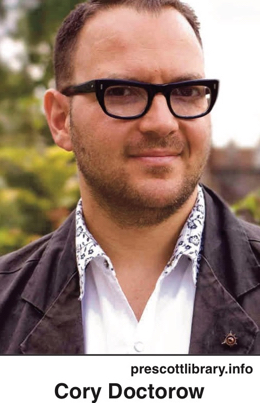Rascals case in brief
In the beginning, in 1989, more than 90 children at the Little Rascals Day Care Center in Edenton, North Carolina, accused a total of 20 adults with 429 instances of sexual abuse over a three-year period. It may have all begun with one parent’s complaint about punishment given her child.
Among the alleged perpetrators: the sheriff and mayor. But prosecutors would charge only Robin Byrum, Darlene Harris, Elizabeth “Betsy” Kelly, Robert “Bob” Kelly, Willard Scott Privott, Shelley Stone and Dawn Wilson – the Edenton 7.
Along with sodomy and beatings, allegations included a baby killed with a handgun, a child being hung upside down from a tree and being set on fire and countless other fantastic incidents involving spaceships, hot air balloons, pirate ships and trained sharks.
By the time prosecutors dropped the last charges in 1997, Little Rascals had become North Carolina’s longest and most costly criminal trial. Prosecutors kept defendants jailed in hopes at least one would turn against their supposed co-conspirators. Remarkably, none did. Another shameful record: Five defendants had to wait longer to face their accusers in court than anyone else in North Carolina history.
Between 1991 and 1997, Ofra Bikel produced three extraordinary episodes on the Little Rascals case for the PBS series “Frontline.” Although “Innocence Lost” did not deter prosecutors, it exposed their tactics and fostered nationwide skepticism and dismay.
With each passing year, the absurdity of the Little Rascals charges has become more obvious. But no admission of error has ever come from prosecutors, police, interviewers or parents. This site is devoted to the issues raised by this case.
On Facebook
Click for earlier Facebook posts archived on this site
Click to go to
Today’s random selection from the Little Rascals Day Care archives….
Click for earlier Facebook posts archived on this site
Click to go to
Today’s random selection from the Little Rascals Day Care archives….
Prosecutors Book Club, please take note
April 19, 2014
“Is it possible to so modify child forensic interviewing that the sorts of errors described by Ceci and Bruck are minimized?…
“The primary problem is that most prosecutors and most so-called mental health professionals do not stay current….
“How likely, for instance, is it that a copy of ‘Jeopardy in the Courtroom’ will be found on your favorite prosecutor’s desk?”
– From “A Review of a Review of ‘Jeopardy in the Courtroom’ by Stephen J. Ceci and Maggie Bruck” at falseallegations.com
What? No Little Rascals on Edenton’s Wiki page?
 Sept. 12, 2014
Sept. 12, 2014
Edenton has been the scene of many historic events – the Edenton Tea Party, the escape of Harriet Jacobs, etc. – but surely nothing happened there in the entire 20th Century more significant than the Little Rascals Day Care case.
So why is the case not even mentioned on Edenton’s Wikipedia page?
On Sept. 28, 2013, a rogue editor abruptly removed a passage similar to this one:
“Edenton achieved international notoriety for the Little Rascals Day Care sexual abuse trial, the subject of journalist Ofra Bikel’s award-winning trilogy of documentaries….”
Wikipedia entries are intentionally easy to edit, but the process leaves fingerprints.
The person whose name is attached to the Little Rascals deletion turns out to be an innkeeper in Edenton. He ended our exchange with “I did not remove anything or post anything on that site…. must have been my competitor from across the street.”
I have restored the deleted passage – let’s hope it proves innkeeper-proof.
What prosecutors didn’t (want to) know
Sept. 17, 2012
I don’t doubt that prosecutors asked themselves many questions during the course of the Little Rascals case. “Think it’s gonna rain tomorrow, Nancy?” Or maybe “You want anchovies on yours, Bill?”
On more relevant issues, however, they seem to have been remarkably incurious. For instance….
■ Why did none of the defendants in the state’s biggest sex-abuse case have any history of sex crimes?
■ When sex-abusers of children are almost always men, why were five of the Edenton Seven women?
■ Why was there a complete absence of physical evidence?
■ Why did none of the frequently cited child-porn photographs ever turn up?
■ At a day care where parents came and went often and unpredictably, why did not one adult ever report anything suspicious?
■ Why was every child seen by prosecution therapists determined to have been abused, but none of those seen by out-of-town therapists?
■ When criminal conspiracies almost always collapse at the first offer of a plea deal, why did none of these defendants agree to point a finger at the others?
■ Could it really be just coincidence that these allegations surfaced so soon after a day-care ritual-abuse seminar attended by the Edenton police officer who would lead the investigation?
For prosecutors to have raised such questions, of course, would risk recognizing their career-making case as a colossal sham. Better to stay blindered and to forge ahead….
The shocking ease of installing ‘lost memories’
 Feb. 13, 2015
Feb. 13, 2015
“Psychologists terminated a study (of 70 students at a Canadian university) that showed the ease of implanting false memories of committing terrible, violent crimes in the recent past – because some subjects couldn’t be convinced that they hadn’t committed the crime after they were told the truth.”
– From “Police interrogation techniques generate false memories of committing crimes” by Cory Doctorow at Boing Boing (Feb. 9)
More on this recent study from Sarah Barmak at the Toronto Star:
“If subjects said they couldn’t remember the false event, questioners reassured them they would be able to retrieve their ‘lost memories’ if they tried hard enough. If they began to ‘remember,’ experimenters asked for more detail. Do you recall any images? How did you feel? Visualize what it might have been like, they said, and the memory will come back to you….”
“Lost memories,” of course, were the fool’s gold mined so relentlessly by the prosecution therapists in the Little Rascals Day Care case. Remarkably, it took only three 40-minute sessions for the Canadian researchers to corrupt the memories of fully 70 percent of their college-age subjects – the Little Rascals children required months of implantation!











0 CommentsComment on Facebook